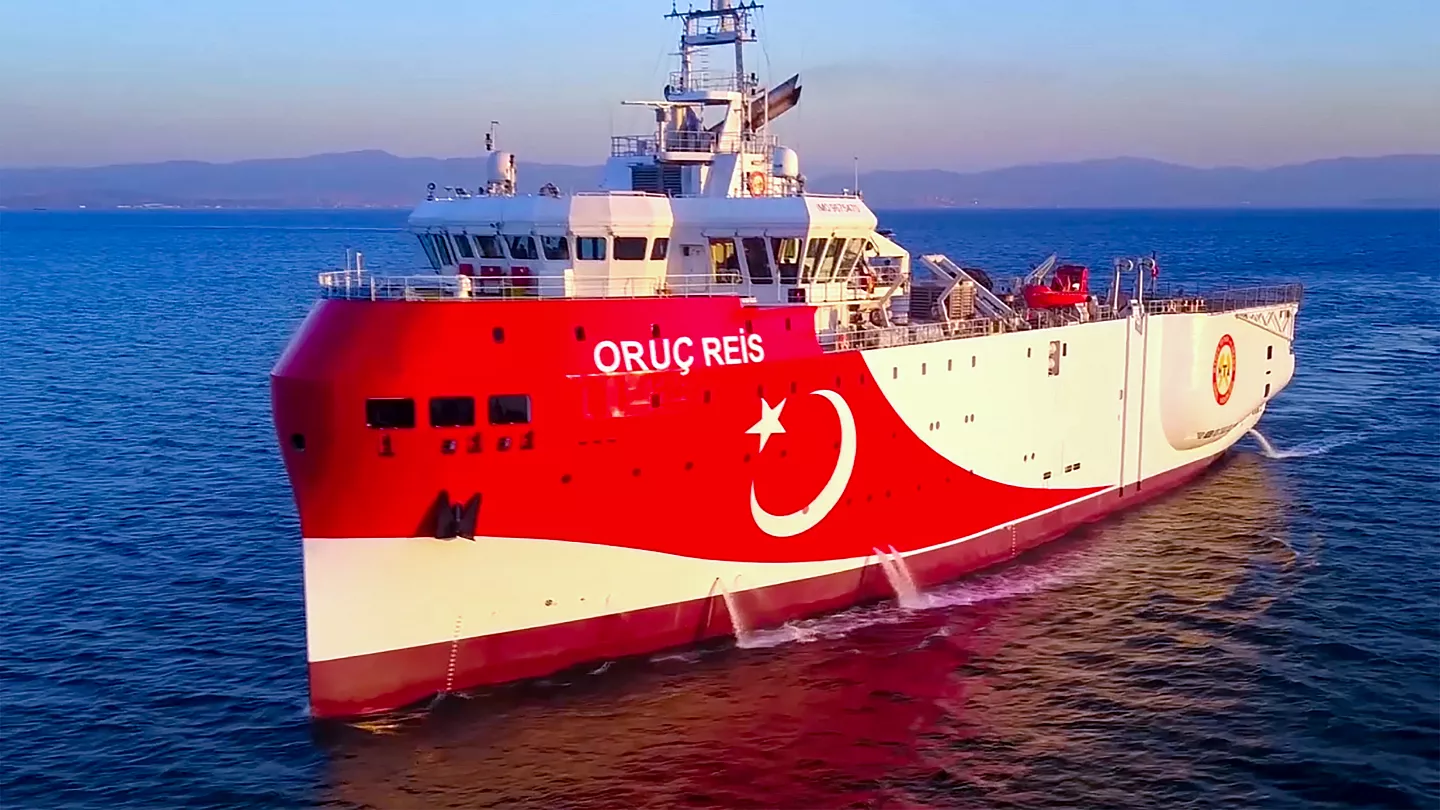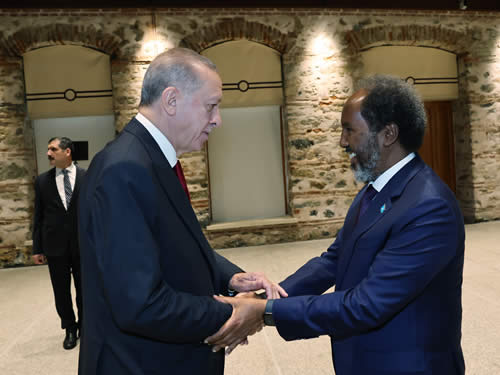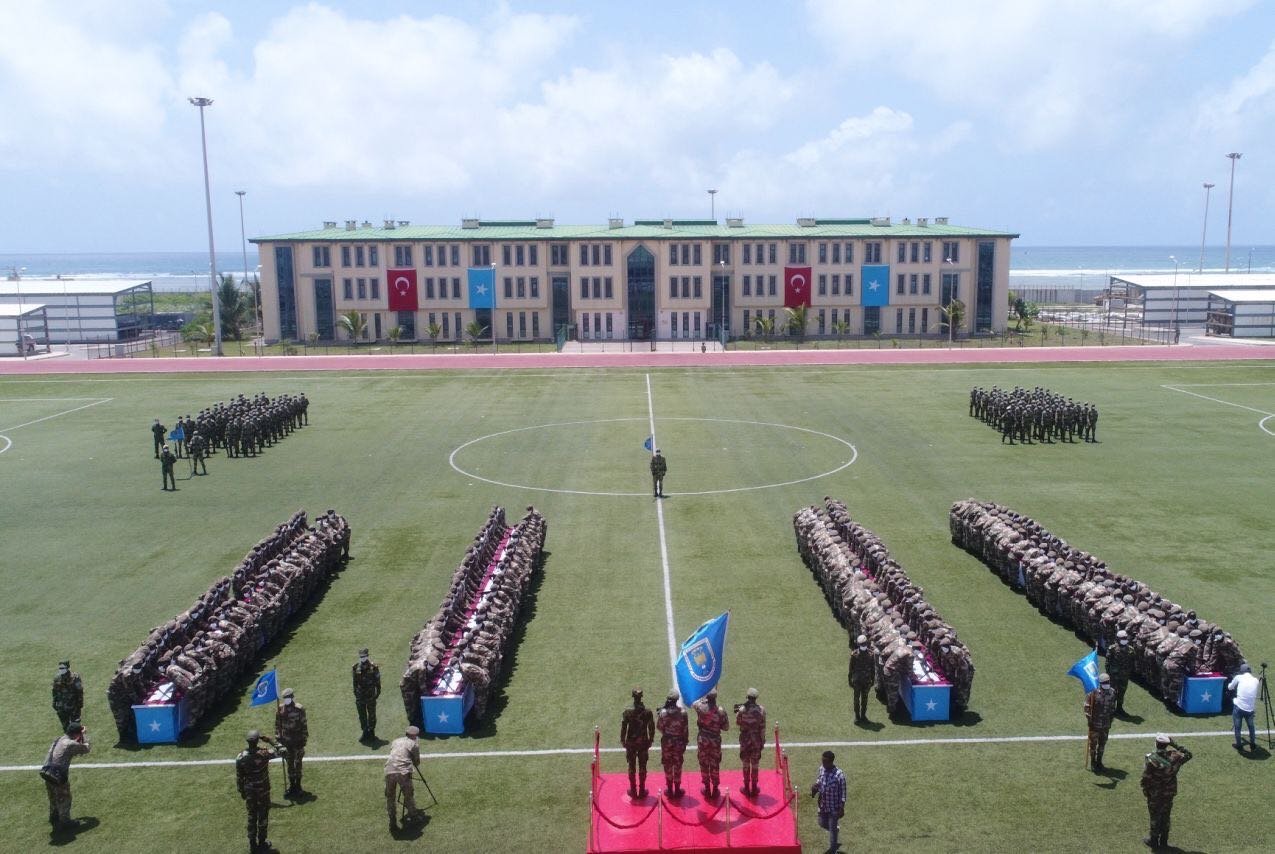Levent Kenez/Stockholm
Turkey, in line with an energy agreement signed on February 8, 2024, is set to commence oil and natural gas exploration in Somali waters starting from September. Additionally, in response to both the need to secure its vessels and a request from the Somali government, Turkey is preparing to deploy additional military personnel to the country.
Turkish Minister of Energy Alparslan Bayraktar announced that the Hydrocarbon Exploration and Production Agreement was signed on July 19 by the Turkish Petroleum Corporation (TPAO) and the Somali Petroleum Authority. This announcement followed an inter-delegation meeting held in Istanbul with Somali Minister of Petroleum and Mineral Resources Abdirizak Omar Mohamed. According to the agreement, TPAO will conduct exploration activities in three areas of Somali waters. The Turkish research vessel, Oruç Reis, accompanied by a team of approximately 50 members, is scheduled to arrive in Somalia in September. The Oruç Reis will be supported by five warships from the Turkish navy.

Concurrent with this development, a presidential decree signed by President Recep Tayyip Erdogan has been submitted to the Turkish parliament. The decree proposes the deployment of Turkish naval and additional military personnel to Somalia for a period of two years to support the country’s security efforts against terrorism and other threats.
The decree emphasizes that through cooperation with Somalia, Turkey aims to secure Somalia’s economic resources and contribute to stability and security in a region critical for Turkey’s foreign trade and maritime transportation. It also aims to strengthen the country’s friendship with Somalia. Additionally, the decree highlights Turkey’s intention to bolster efforts against terrorism and piracy in the Gulf of Aden, the Arabian Sea and adjacent areas — efforts that are crucial for international peace and stability and which also affect Turkey’s national interests
The decree notes that although Somali defense and security forces possess adequate potential in terms of personnel and other resources, they have been unable to achieve the desired level of effectiveness in fulfilling their duties due to economic difficulties.
The decree specifies that President Erdogan will determine the number of soldiers to be deployed and the specific military units to be assigned to the mission after the decree is approved.
On February 8 Turkey and Somalia signed a memorandum of understanding to enhance cooperation in energy. This agreement between the two countries, which already enjoy close ties, was a continuation of a recently signed defense and economic cooperation pact. According to the new agreement, about which Ankara did not provide many details to the public, Turkey offered defense support in exchange for a series of economic concessions.
The Mogadishu administration also aimed for significant oil production in waters to be secured by Turkey. Research indicates that there are proven reserves of 35 billion barrels of oil in the Somali maritime zone.
Turkey would share in the revenue from oil and gas extraction in Somali territorial waters in exchange for the defense it provides, earning 30 percent of the revenue from extraction that Turkey contributed to. The agreement also envisages Turkey having privileged access to the special economic zone.

The agreement also represents the realization of a statement by Turkish President Erdoğan in which he mentioned that the Somali administration had offered Turkey the opportunity to extract oil from Somali territory, mirroring Turkey’s activities in Libya.
However, Turkey has not undertaken any concrete projects related to oil extraction or natural gas exploration to date in Libya.
On February 21 Somali President Hassan Sheikh Mohamud announced the approval of a 10-year defense and economic cooperation agreement with Turkey by both the executive and legislative branches of Somalia. According to Somali Prime Minister Hamza Abdi Barre, Turkey will be responsible for establishing, training and equipping the Somali navy under the terms of the agreement.
Turkey has had a robust alliance with Somalia since 2011, initially stepping in to provide humanitarian aid during a famine. As part of its endeavors to bolster the country’s reconstruction, Turkey has actively engaged in various initiatives, including the establishment of schools, training programs for Somali soldiers and the implementation of infrastructure projects. Over the past decade Turkey has significantly expanded its presence in Somalia, constructing a military base in the capital city and assuming control of vital infrastructural assets such as the Aden Adde International Airport and the Port of Mogadishu, overseen by entities associated with President Erdogan.
In 2017 Turkey established its largest foreign military base, Camp TURKSOM, in Mogadishu, marking a significant escalation of Ankara’s involvement in the Horn of Africa nation. Spanning an area of four square kilometers and reportedly costing $50 million, the military training facility has the capacity to simultaneously train up to 1,500 soldiers.
In 2020 Turkey secured a series of concessions facilitating the exploration of oil, gas and mining prospects in Somalia, enabling both private and state-owned companies to explore energy opportunities in the country.
According to UN investigators Turkey violated UN sanctions on Somalia by supplying armed drones without UN notification or approval. It delivered Bayraktar drones produced by Erdogan’s son-in-law’s company to Mogadishu on December 6, 2021, violating the UN arms embargo. Despite UN Security Council resolution requirements for pre-delivery clearance, Turkey failed to seek an exemption before transporting the drones. Turkey claimed the drones were for its counterterrorism efforts in Somalia, denying supplying them to Somali authorities as reported by UN experts on September 1, 2022.

As a side note, Mohamed Hassan Sheikh Mohamud, a son of the Somali president, collided with a motorcycle driven by Yunus Emre Göçer on November 30, 2023 in Istanbul. Göçer, who was injured and hospitalized, tragically passed away on December 6, 2023. Later, it was discovered that Mohamud had left the country. Following a public outcry, Mohamud secretly returned to Turkey, where he was fined $843, and the case was closed. Additionally Turkish media reported that the Mohamud family reached a confidential agreement with Göçer’s widow, agreeing to pay compensation. The Somali president’s gratitude towards Erdogan for his intervention, resulting in his son’s avoiding a prison sentence, has also surfaced in reports.
The opposition had previously criticized the fact that the details of the agreements had not been shared with parliament and expressed concern that Turkey might face problems with Ethiopia, which has serious issues with Somalia, and could be dragged into an adventure in the Gulf of Aden. Yankı Bağcıoğlu, deputy chairman of the main opposition Republican People’s Party (CHP), in March said that despite the significant investment in deep-sea drilling and seismic vessels in the eastern Mediterranean, specifically beyond the Gulf of Antalya, no research had been conducted with these costly vessels. He added that the deployment of these vessels to Somalia now indicates that Turkey has been sidelined from the eastern Mediterranean due to external pressures.












